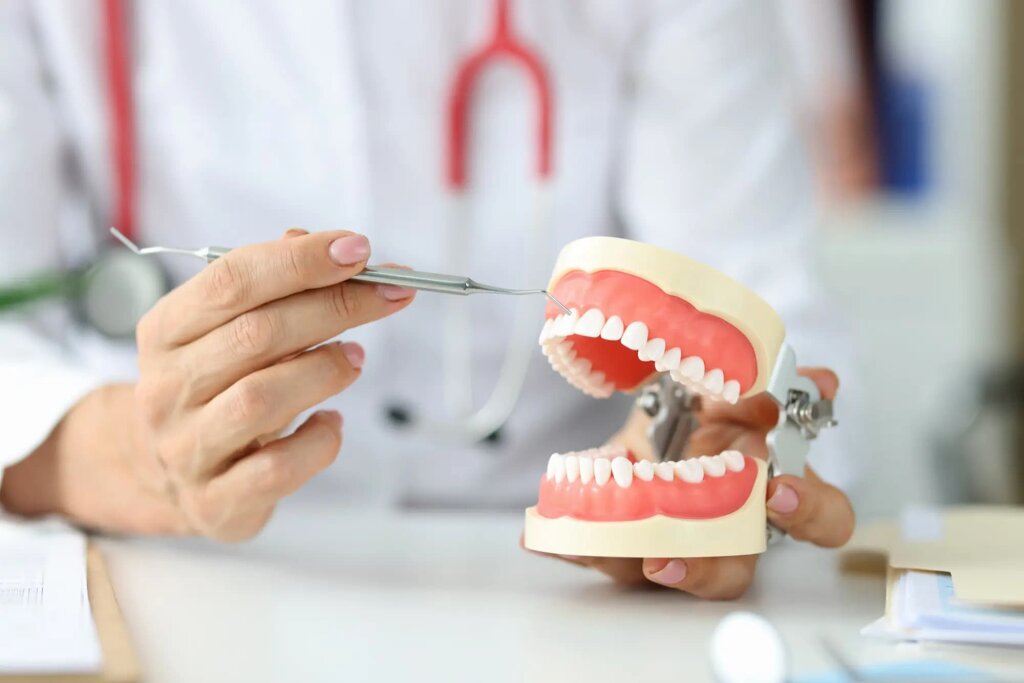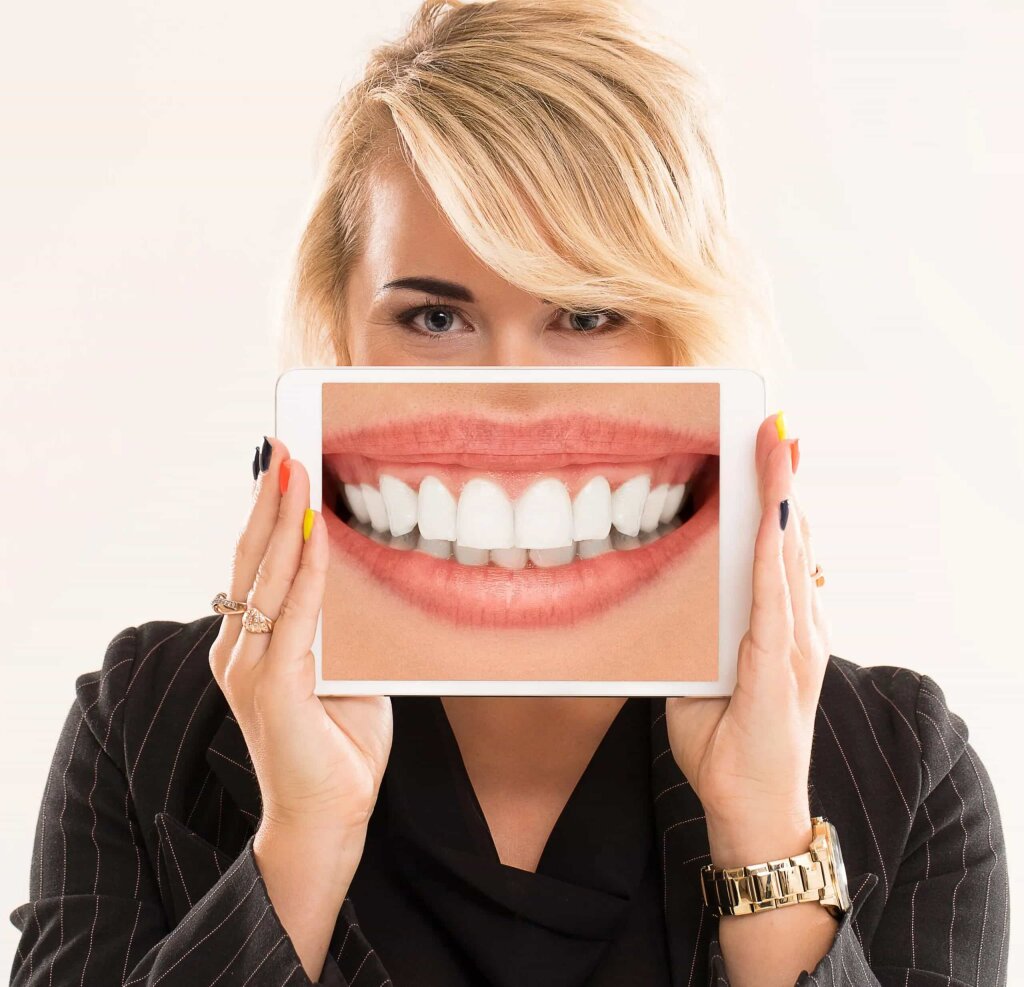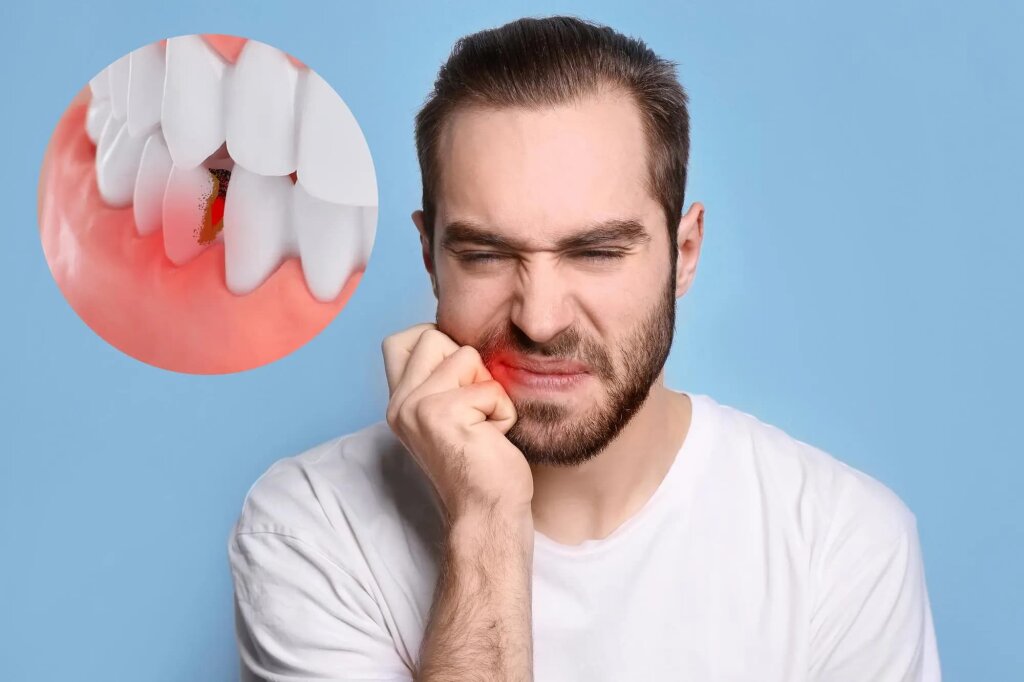What Are Dental Prosthetics?
Dental prosthetics are artificial teeth used to replace missing teeth in the mouth. Tooth loss can create aesthetic issues and affect chewing and speaking functions. Dental prosthetics help address these deficiencies, allowing patients to regain their smiles and improve their oral health.
The main goal of dental prosthetics is to replace missing teeth, restoring the function and aesthetics of natural teeth, thereby eliminating the problems caused by tooth loss. Dentists provide customized solutions based on patients' individual needs during the design and creation of prosthetic teeth.
How Are Dental Prosthetics Made?
The process of making dental prosthetics involves detailed steps and generally includes the following:
Examination and Planning: Initially, the dentist examines the patient’s oral structure and dental health. This stage involves starting the planning and design processes for the prosthetic teeth.
Impression Taking: Impressions of the oral cavity are taken. These impressions ensure that the prosthetic teeth fit perfectly and provide comfortable use. This process is typically carried out using digital or traditional methods.
Prosthetic Creation: Based on the impressions, prosthetic teeth are prepared in a laboratory environment. During this process, material quality and aesthetic compatibility are prioritized. Dental technicians produce custom prosthetics suited to the patient's oral structure.
Fit and Adjustment: Once the prosthetic teeth are placed in the mouth, adjustments are made to ensure patient comfort and natural appearance. This stage ensures that the prosthetics fit comfortably in the mouth.
Final Check: The fit and function of the prosthetic teeth are checked. Necessary corrections are made until the patient’s satisfaction is achieved.
What Are the Types of Dental Prosthetics?
Dental prosthetics are generally divided into two main categories:
Fixed Prosthetics: These prosthetics are attached to the teeth and cannot be removed. Common examples include porcelain crowns and bridges. Fixed prosthetics provide a permanent solution for missing teeth and generally offer a natural aesthetic appearance.
Removable Prosthetics: These prosthetics can be removed and cleaned. Full dentures and partial dentures fall into this category. Removable prosthetics are used in cases of missing teeth and can be easily taken out and put back by the patient.
Dental prosthetics offer various options to meet patients' aesthetic and functional needs. Both types of prosthetics provide effective solutions for individuals with tooth loss and support oral health.
Dental Prosthetic Costs
The cost of dental prosthetics varies based on the quality of materials used, the type of prosthetic applied, and the complexity of the treatment. For detailed information on prices, please contact our clinic. Costs are customized according to the patient’s needs and the selected type of prosthetic.
Frequently Asked Questions About Dental Prosthetics
What are dental prosthetics?
Dental prosthetics are artificial teeth used to replace missing teeth.
How many types of dental prosthetics are there?
Dental prosthetics are generally categorized into fixed prosthetics and removable prosthetics.
How durable are dental prosthetics?
The durability of dental prosthetics depends on the materials used and their maintenance. When well-maintained, they are generally long-lasting.
How are dental prosthetics cleaned?
Dental prosthetics should be cleaned after each meal using a toothbrush and soapy water. Additionally, prosthetic cleaning tablets can be used.
Do dental prosthetics cause pain?
Dental prosthetics may cause mild discomfort when first placed, but this usually subsides over time and generally does not cause pain.
How long does it take to complete dental prosthetics?
The completion time for dental prosthetics varies depending on the individual's situation, usually ranging from a few weeks to a few months.
How are dental prosthetics made?
Dental prosthetics are made by taking impressions by the dentist, preparing them in the laboratory, and fitting them to the mouth.
How long can dental prosthetics be used?
The usage period of dental prosthetics varies depending on material quality and maintenance, but they generally last between 5 to 10 years.
Do dental prosthetics affect eating?
After the adaptation period, dental prosthetics do not interfere with eating and can function like natural teeth.
What are the costs of dental prosthetics?
The costs of dental prosthetics vary based on material used, dentist's fee, and treatment complexity.






